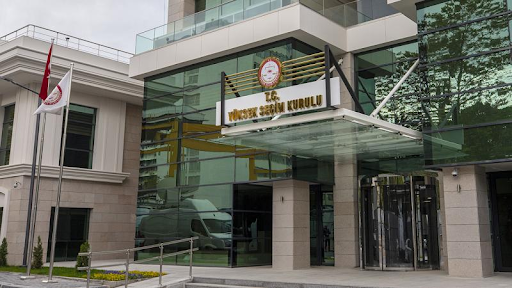In a recent decision by Turkey’s Supreme Election Council (YSK), the distribution of parliamentary seats across the country’s provinces has been updated based on the latest population data. The changes, published in the Official Gazette, reflect shifts in population dynamics and will impact the composition of the Grand National Assembly of Turkey. Ankara, Muğla, and Şanlıurfa have each gained one parliamentary seat, while Bayburt, Erzurum, and Yozgat have each lost one.
The YSK’s decision aligns with Article 4 and 5 of Law No. 2839 on Parliamentary Elections, which mandates that the distribution of parliamentary seats be updated within six months following the announcement of the general population census results. The latest population data, released by the Turkish Statistical Institute (TÜİK) on December 31, 2024, served as the basis for the redistribution of Turkey’s 600 parliamentary seats.
Key Changes in Parliamentary Seat Allocation
Ankara, Turkey’s capital, will now have 37 parliamentary seats, up from 36, reflecting its growing population and political significance.
Muğla, a popular tourist destination on the Aegean coast, has seen its representation increase to 8 seats, up from 7.
Şanlıurfa, a province in southeastern Turkey with a rapidly growing population, will now have 15 seats, up from 14.
On the other hand, Bayburt, a small province in the Black Sea region, has lost one seat, reducing its representation to just 1.
Erzurum, a historically significant province in eastern Turkey, has dropped from 6 to 5 seats.
Yozgat, located in central Anatolia, has also seen a reduction, from 4 to 3 seats.
Major Cities and Their Representation
Istanbul, Turkey’s largest city and economic hub, will continue to have the highest number of parliamentary seats at 96, divided across 3 electoral districts.
Ankara, with its increased representation, will now be divided into 3 electoral districts.
İzmir, Turkey’s third-largest city, will have 28 seats, distributed across 2 electoral districts.
Bursa, a major industrial center, will have 21 seats, divided into 2 electoral districts.
Analysis of the Redistribution
The changes in parliamentary seat allocation highlight Turkey’s ongoing demographic shifts. Urban centers such as Ankara, İzmir, and Muğla are experiencing population growth due to internal migration and urbanization, while smaller provinces like Bayburt and Yozgat are seeing a decline in population. This trend is consistent with global patterns of urbanization, where rural areas lose residents to larger cities in search of better economic opportunities.
The increase in seats for Şanlıurfa underscores the demographic growth in southeastern Turkey, a region that has historically had higher birth rates compared to other parts of the country. Meanwhile, the reduction in seats for Erzurum and Yozgat reflects the challenges faced by smaller provinces in retaining their populations.
International Context
Turkey’s parliamentary seat redistribution process is similar to practices in other democracies, such as the United States’ congressional reapportionment and the United Kingdom’s boundary reviews. These processes aim to ensure fair representation based on population changes. However, in Turkey’s case, the adjustments also carry significant political implications, as the ruling party and opposition parties vie for dominance in key regions.
Political Implications
The changes could influence the balance of power in Turkey’s parliament. Provinces like Ankara and Şanlıurfa, which have gained seats, are politically significant. Ankara is a key battleground for both the ruling Justice and Development Party (AKP) and the opposition Republican People’s Party (CHP), while Şanlıurfa is a stronghold for the AKP and its ally, the Nationalist Movement Party (MHP). The loss of seats in Bayburt, Erzurum, and Yozgat, which are traditionally conservative regions, may not significantly impact the AKP’s overall dominance but could still affect local political dynamics.
Conclusion
The YSK’s decision to update parliamentary seat allocations reflects Turkey’s evolving demographic landscape. As urban centers grow and smaller provinces shrink, the political map of the country continues to shift. These changes will play a crucial role in shaping the outcomes of future elections, as parties strategize to maximize their gains in key regions. The updated seat distribution will take effect in the next general election, scheduled for 2028, unless an early election is called.
For now, the focus remains on how political parties will adapt to these changes and what they mean for Turkey’s democratic representation in the years to come.


